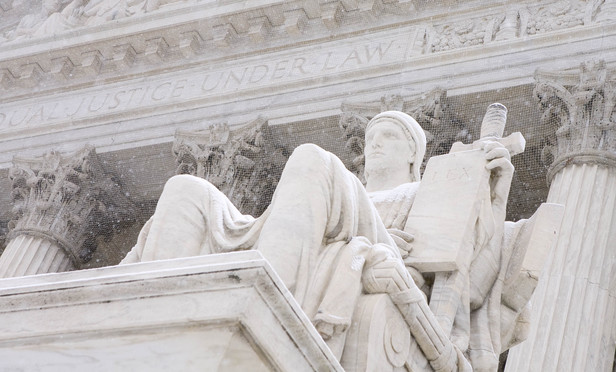A man on Alabama’s death row for 28 years won a new opportunity to show that his trial lawyer was ineffective on Monday, when the U.S. Supreme Court ruled that both the lawyer and the trial judge misunderstood a point of law fundamental to his case.
In an unsigned, unanimous opinion, the justices ruled in Hinton v. Alabama that Alabama courts incorrectly applied the test for ineffective assistance of counsel that the high court established in Strickland v. Washington (1984). Under that test, a defendant’s Sixth Amendment right to counsel is violated if his trial attorney’s performance falls below an objective standard of reasonableness and the attorney’s deficient performance was prejudicial to the trial’s outcome.
This content has been archived. It is available through our partners, LexisNexis® and Bloomberg Law.
To view this content, please continue to their sites.
Not a Lexis Subscriber?
Subscribe Now
Not a Bloomberg Law Subscriber?
Subscribe Now
LexisNexis® and Bloomberg Law are third party online distributors of the broad collection of current and archived versions of ALM's legal news publications. LexisNexis® and Bloomberg Law customers are able to access and use ALM's content, including content from the National Law Journal, The American Lawyer, Legaltech News, The New York Law Journal, and Corporate Counsel, as well as other sources of legal information.
For questions call 1-877-256-2472 or contact us at [email protected]



